Resources
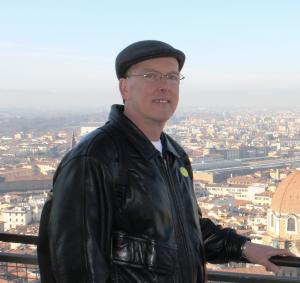
In 2018, I participated in an AAR session on self-disclosure in the classroom. I recall having a heated debate with some colleagues about whether we should reveal elements of our personal lives to students—especially the struggles or darker experiences we might have had—to help students connect their contexts and personal experiences with the material we teach, which are key components of Ignatian pedagogy. I recognize that self-disclosure for the sake of personal promotion is not a good thing. But what about self-revelation that might connect meaningfully with the subject matter or with students’ own experiences? As Parker Palmer writes: “many young people today journey in the darkness as the young always have, and we elders do them a disservice when we withhold the shadowy parts of our lives” (Let Your Life Speak, 18).Several years ago, some colleagues and I engaged in a writing retreat where we explored our vocational calling as teachers, which eventually became a book of essays entitled Why We Do What We Do (2014). The focus of that retreat was to explore whether there was a moment, an event, or an experience that not only led us to pursue college teaching as a vocation, but also shaped the path of our teaching.My own story relayed how my Irish twin brother’s suicide at Christmas affected my faith in God, leaving me wondering where God was in a time of tragedy. It was my theology professor’s willingness to share his own tearful reflections on the meaning of the words of Jesus on the cross—“My God, my God, why have you forsaken me”—that challenged me. He highlighted the notion that the good news of the cross and Resurrection was not that God protects us from harm, but instead is present with us as we create new possibilities out of tragedy. While other students complained he was dismissing their conservative theological beliefs, here is what I wrote:“I responded with tears of my own, not because his words made me sad but because he was the first to speak directly to my experience and to what I was feeling and thinking. The tragedy of my brother’s death was senseless. We never found out why he did it; we could only surmise. But his suicide brought my family together, really together, for the first time in years. Bobby’s death confronted us with the reality of how much we were strangers to one another and how little we knew about each other’s lives. His death rekindled our sense of what it meant to be a family and the love we felt for one another—a love that continues to this day. This was the meaning we were creating together. Was God a part of that? I didn’t know, but it made more sense about God’s role in our lives than anything else… It was then that I knew what my life wanted me to do—to teach, to express the same passion for the ideas, for the people who generate them, and for the students who encounter them.”The text we wrote together became the common reading for the required first-year seminar the following fall. My colleagues sent me notes about how much the students who read my essay resonated with my experiences of loss and grief, of faith and doubt. It gave them a chance to voice their own questions, to see that their struggles—emerging from their contexts and experiences—were not unique. And it opened the door for them to connect meaningfully with the faculty who were teaching them.One of my colleagues wrote:“I just finished reading a stack of journals from my two COR100 sections, in which we read the Why We Docollection. I wanted to let you know that your essay moved a number of my students. I'd say at least a dozen wrote about your piece. Sadly, at this young age, many have already experienced personal tragedies, and your essay really spoke to them. They were stunned by how honest it was, and they felt comforted that some faculty could relate to their experiences (or, in their words, are ‘real people too’). I hope that some of these students will find their way to you someday to ask their own questions. Until then, it's good for them to know that you're here. Thanks for writing the essay you wrote.”Over the years, some of the students did find their way into my classroom. One student wrote:“For some happenstance I found Why We Do What We Do on my shelf tonight and decided to read a few of the essays in there. I found yours and I want to thank you for writing your piece, it brought me to tears. One of the reasons being is that I have been questioning as well for a long time, and I haven't been able to express it to anyone. Your writing made me feel like I wasn't alone in questioning and there's a certain comfort in that.”Another student, who had recently lost her estranged father to a heroin overdose after years of drug addiction, wrote:“The reason I'm telling you all this is because I can barely put in words how much your story impacted me the first, second, and 30th time I've read it. You put into words exactly the struggles I'd been feeling towards my faith, my father's choices, and the pain I've felt for my family as they deal with their own relationships with my dad. I cry whenever I read the interpretation your professor gave you in class that day of Jesus’ words on the cross… I don't even know if I'm giving you enough credit for how much your story has helped me grieve for my dad and process my own relationship with God through this time. There was something so cathartic about realizing the doubts I was having in my faith and in God were not unreasonable or something no one else had felt before.”Self-disclosure of our growth experiences, both good and bad, in the service of teaching and learning lets our students know that we are “real people too” who have struggled and continue to struggle to find answers and meaning. By embracing our own liabilities and limits as well as our strengths, and by connecting them to the subjects we teach, we not only live out our vocation as teachers but contribute to our students’ search to find meaning and wholeness in their lives.
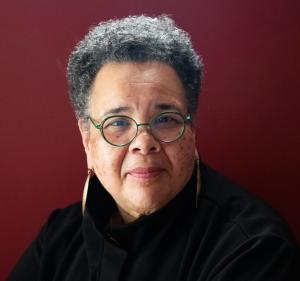
(An audio version of this blog may be accessed here.) As scholar/teachers, we must have and be able to articulate our intellectual project. It is good if it happens in the early career stages of a scholarly career, but it is never too late. A scholar’s intellectual project is: the philosophical cornerstone of their scholarly career the 50,000 foot/big picture pursuit of their intellectual work the grounding of their work the perennial question, issue, the quest the epistemological guiding-star for decision-making toward that which the scholar works their entire career; their scholarly passion and intellectual haunting, that which they are interested in—regardless of their status or season of their career. The intellectual project is your big pursuit, your big idea. Your intellectual project is why you wanted to be a scholar and why you continue in scholarship. There will always be smaller, contributory ventures which engage, address, and actualize your central inquiry or question, BUT those smaller schemes are never the whole of your intellectual project. They may satisfy an aspect or element of your intellectual aspiration. However, the desire of your intellectual inquiry is bigger, much bigger, than any one expression created as a single book, journal article, course offering, or artistic rendering. The key is to be able to articulate the most basic description of your intellectual project. This is a necessary to your scholarship and to participating in a scholarly community. Your intellectual project, over the course of your career, and over the seasons of your work, will refine, deepen. The project might even shift and change. Regardless of these potential changes and shifts, your articulation of your principal project is paramount. An intellectual project is not: a single job or your career; on the contrary, your places of employment are in service to your project a single grant proposal or committee accomplishment a single publication or panel participation defined by your approaches to your scholarship; the methodologies of engagement of your project are not the project dependent upon nor redundant to the conversation in your academic field; your project is meant to add to the conversation already in the field. You need a boiler plate speech. Your project must be articulatable in 3 to 7 sentences. You should have a succinct paragraph that describes, in its most basic, your intellectual project. This is as much for your own comfort and focus as for those who will ask you about your work. Knowing your project, as well as being able to succinctly communicate your project, allows you to work your project. This work is not easy. Your intellectual project’s articulation might feel elusive or vague. Intellectual projects can be bold/ “in your face”/dazzling. They can also be coy, temperamental, and evasive. Knowing your project is good—being able to articulate your project is what is needed; articulation may take time and great effort. Questions to spark, encourage, point toward clarity of articulation of your intellectual project: What is your curiosity? Or, to what are you compelled? To what are you called? What are your perennial questions? What are your big, philosophical, epistemological questions that are worth spending a career or lifetime pursuing? What issues would you study/explore/interrogate/pursue with or without salary? What agenda do you bring to every job? Toward what questions or issues do you bend every job, all writing, and all your courses? What has broken your heart and so now, to mend your heart, what will your scholarship be about? What is your immortal wound, and how are you saving your own life through scholarly pursuit? What, for a lifetime, will you resist, protest, contest, and fight against? What wrong will you right? What makes you so mad that you spring into action – especially the action of intellectual work and scholarly labor? What is your vision for the new world and how will this vision be embodied by your scholarship? At the end of your life, when you look back over your long and illustrative career, to what did you say yes? What is the pattern of your yes-saying and what can you glean as having been your project? Who is your inspiration and what was/is their project? How will you attach to it; fulfill it? What is the intersection of your gifts/talents with the mighty needs of the world? Why did your people send you to school? For them, what will be your scholarly accomplishment and contribution? How will your scholarship liberate your people? Intellectual projects are often vivid to other people, ask someone who knows you and your work. What do they believe your project is? Going through a search process routinely helps with clarifying your intellectual passion, focus, and intent. These processes force you to articulate your vision, perspective, aspirations, and scholarly itches. Consider applying for a job and see what happens with articulating your intellectual project. Beyond participating in a search process, consider the following to assist with coming to know and articulate your project: Write and rewrite a mission statement, write an elevator speech, write in simple prose, 3 to 7 sentences; practice those sentences on family, friends, and colleagues until they make sense to them and have resonance with you. In question format—create a list of 50 to 100 questions which frame your curiosity and pursuits, then cull the list down to the questions you want to pursue for years to come. In poetic or in creative forms, design a rendition of your intellectual project, then contemplate it; after contemplation, write your paragraph. If your scholarly project is woven into a course, assign students the task of mapping, charting, postering or displaying the basic concepts of the course. This allows you a perspective to see what you talk about when you talk about what you talk about. Often our students know our work of thinking better than we do. Invite several faculty colleagues to create public or digital displays of their intellectual projects then host a gathering to explore and celebrate the current and future work of the colleague. Plan several recorded conversations with a trusted colleague who will dialogue with you as you think through, think out loud, and articulate. Re-read your dissertation. Use that as a springboard to say what you are, actually, about.
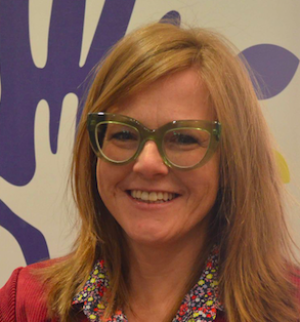
“It’s like you’re crying out for them to trust you.” These insightful words were said to me nearly 10 years ago in a small group conversation at a Wabash Workshop for Pre-Tenure Theological School Faculty. I remember the conversation with gratitude. We were sharing with each other what we had written down individually in response to reflection prompts about our experience in the classroom. The prompts had elicited some unprocessed emotions in me about my first few years of teaching. I was fortunate to get a teaching job the same semester I earned my Ph.D. I had some confidence in my abilities to do the job well, as I had graduated at the top of my class and gained some valuable classroom experience and mentoring in graduate school. But what little confidence I had was quickly shaken. After I had distributed and explained the syllabus in my first class, a student declared, “We’re going to run you back to Toronto where you came from!” Everyone laughed and cheered. This class was comprised mostly of men, ranging in age from 40-70 years old, with one year left in their graduate program before they were ordained to the deaconate in the Roman Catholic Church. I stood before them as a freshly minted Ph.D., who had just turned 30 years old, and had not yet had the time or experience to find confidence my teaching voice. The demanding syllabus I had crafted may have surprised them, given my age, gender, and long blond hair. I made it through that first semester, but I have the scars to prove it. I still remember one classroom discussion in which a student admitted, “I don’t know why I like to pick on you so much.” In another class, after a student bluntly told me that he didn’t know why I was teaching the way I was, I shouted, “I have a PhD!” In hindsight, over a decade later, I can see the situation for what it was. My body was not welcome in the space. Just by standing in front of the class, as a woman in a position of religious authority, I challenged their assumptions of credible leadership. It’s likely that my students asked the (un)conscious question, “If she can’t be ordained, can she teach those who will?” At the time though, the resistance I faced in the classroom, caused me to doubt my teaching vocation. “Maybe they’re right,” I worried. “Maybe I just don’t belong.” As a first-generation college student, I always felt like a bit of a misfit in graduate school. But now I was feeling for the first-time like a misfit in the church. Sharing these experiences with my Wabash cohort colleagues brought healing and affirmation of my teaching vocation. Each of us in the cohort were all so different in so many ways (i.e., personality, educational background, race, ability, religious affiliation, culture) but we shared a vocation (in addition to a lot of food and fun). Others had not been welcomed in spaces due to their embodiment, in far more violent, ongoing, and consistent ways than I had ever experienced. My cohort experience was also free from the academic pretense that so often deepened my self-doubt. I felt like I could be exactly who I was and that I was valued for it. I belonged. As I began to trust my vocation and my place in the academy and church, my eager desire for my students to trust me waned. It didn’t matter as much. While trust is necessary for real intellectual and spiritual formation to occur, it can’t be earned, begged for, or contrived. In fact, now I understand that the most certain way to gain this trust from students is by embracing who I uniquely am and being true to my vocation.
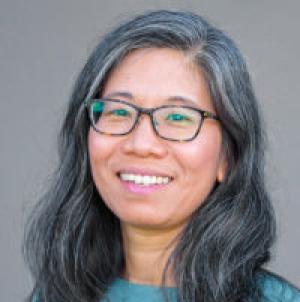
Self-care has become a familiar concept and an area of interest in faculty development and in student life. For many, self-care has become the substance of our reflections about personality traits that stem from our family of origin to concerns about longevity in our professional and vocational lives. The call to care for self does not go unheard, and for many there’s puzzling about hobbies, a reluctance to make the necessary changes to squeeze self-care into our already overloaded schedules, and perhaps even an eschewing of the import of self-care. A lot of people attempt to find an activity to take up for a couple of weeks (think New Year’s resolutions) that will quell the inner voice reminding us to check yet another box on the to-do list because of an intuitive sense that self-care is indeed a healthy practice. Why write a blog about something that doesn’t seem to require much deliberation? After all, isn’t a response to the invitation to care for self a simple yes or no? I have spent the past eight years piecing together a professional response to vocation. While I pursued a terminal degree envisioning a full-time faculty position somewhere, this picture of my ideal professional life has taken a much different turn. For a few years and holding on to my dream, with each cycle of yet another academic year and another application submitted, there was hope that a full-time faculty position, or any full-time job in a seminary, would eventually materialize. In the meantime, I was a busy adjunct instructor and pastoral minister, all the while juggling the demands of family life. With each year and with each declined application, I found myself in a cyclical pattern of saying yes to adjunct work for the following academic year because I was uncertain that I would have other opportunities. Clearly, this was not what I had expected after many years of hard work, nor did I think this was a way to honor the village that showed up so that I could complete the degree and graduate. Don’t get me wrong, there IS immense gratitude for the enriching opportunities to work and I continue to learn best teaching practices, even in areas that aren’t explicitly in my wheelhouse. With little to no job security, teaching and prepping for each new work opportunity is demanding because an invitation to teach again the following year is dependent on performance and whether there is a need. Increasingly and with significant changes in the terrain of theological higher education, graduates with doctoral degrees are required to reexamine their professional aspirations and shift their expectations according to the reality that there may never be a full-time teaching opportunity. From navigating different institutions as an outsider to developing and teaching new courses, individuals in part-time, contractual, and non-tenure track positions amass a full-time workload with hours accrued from various employers. And so, a resolute and affirmative response to the invitation to care for self in this professional adjunct reality is tempered by the constraints that come with financial strain, the emotional toll of job insecurity, the psychological weight of challenges to self-esteem, and the body’s physiological responses to stress, to name a few. None of these adjunct realities negates the import of self-care, and contractual, “part-time” adjuncts are in no way exempt from the need to care for body, mind, and spirit. Burnout is real and an accompanying and worrisome symptom of burnout is apathy. If an outcome of burnout is that instructors no longer have the capacity to care about students and all the good that happens in physical and virtual teaching spaces, then it’s imperative that teachers and institutions alike look closely at institutional culture and professional location to examine the particularities behind resistance to and an inability to say yes to self-care. Whatever the season and context of teaching, administration, church ministry, or any of the myriad ways people are employed, rather than judgement and shaming for the decision to forego self-care because of sheer exhaustion, lack of resources, and the unrelenting pressure to produce in order to matter, the invitation of this blog is to examine professional location and how this supports or obstructs your ability to practice self-care. And if the good work of theological education is meaningful, life-giving, and worth the marathon, perhaps it’s time to dig deep, to unplug, and to access all our grounding sources for a spaciousness that reminds us that we’re more than what we produce and that we’re worthy of care.
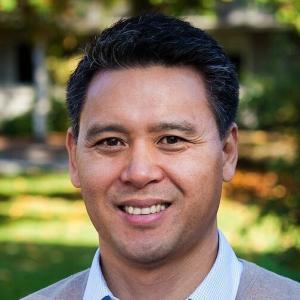
I came across a book during graduate work whose title still haunts me: When Work Disappears by William Julius Wilson (Alfred A. Knopf, 1996). The book is not without controversy as it argues how poverty came to exist in west Chicago because of manufacturing company flight. I am not writing, however, to discuss this argument or its controversy. I am writing about the title, which I cannot shake. It feels all too real; it is all too real for so many of us in theological higher education. This morning, I had a conversation with a good friend of mine, a colleague at another institution with whom I have walked during the last fifteen years in this field. They, unlike many aspiring and newly-minted PhDs, have full-time work. But they, like many PhDs already in the field, face the harrowing prospect of needing to find work elsewhere if they are going to make a living wage. It feels like a sucker punch to the gut when you confront the likelihood of needing to find work in a field that seems to get smaller by the year. You have trained numerous years only to be left facing the reality that full-time work is disappearing, and you wonder if a vocation can be had in a profession and field such as ours. I have more questions and curiosities than I do answers or proposals. Undoubtedly, you are reading this as I am writing it, with wheels turning about different macro-analyses and complexities to explain this upheaval: decreasing involvement in organized religion, generational attitudes towards the cost-value of (theological) higher education, the return on investment of this kind of education in future employment, and so on. This is not a tidy blog post that looks for answers or surefire solutions to very legitimate and far-reaching concerns. The primary intent of raising this topic is that I want to name publicly what many of us feel privately or at least discuss in smaller circles with trusted people. Our collective grieving is happening whether we widely acknowledge it in our respective learning communities, institutions, and guilds or not. Of course, there are theological academic institutions which will survive all of this. The financial wealth of some institutions, coupled with the social investment and concern for keeping these institutions alive, will help them weather the changes in the field. Innovative curriculum and flexible pedagogy might even stave off closure. These are promising trajectories. I wonder, though, how educators collectively, and individually, continue to keep vocation alive when they see their work disappear. Let me put it directly: When you lose (or are on the verge of losing) your faculty position or see colleagues lose theirs, what does this do to your vocation? There are many reasons why we get into the profession of teaching, mostly noble ones. I imagine that, at the heart, we get into teaching and become educators because of vocation. There is something in us that comes alive when we make an impact on the world and people through our teaching and scholarship. What then do we make of our vocation when our professional opportunities close? I do not ask this from afar. I experienced the disheartening reality of a school closure. I have worked on a vocational statement for the last thirteen years. I come back to it every so often as a probing and aspirational exercise. I ask whether this statement continues to describe who I am (probing), while I also look to the statement to guide me in who I am becoming (aspirational). After many revisions and wording changes, the commitment remains the same: my center, call, vocation, and fuel, is to help people live flourishingly. This is more challenging in today’s landscape because work is disappearing. I am adjusting as many of you are too. Checking in with a colleague, serving as a reference for someone doing all they can to secure a position, and having truthful conversations with colleagues as to why you voted to close the degree program they oversee—these are ways to currently express our vocation. There are other small and significant ways you and I keep vocation going. These are not novel ideas, but they take on a deeper quality because of the severe reality that collectively faces us. And if there is a shared vocation in theological higher education today when work disappears, perhaps this is it: that amid our vocation to teach and form is also a vocation to grieve loss in our field and to humanize people who make up and (hope to) carry out the field.
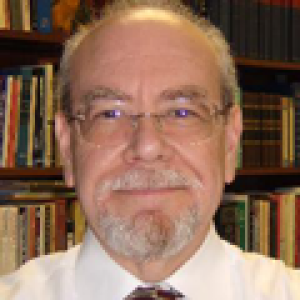
Management is easy, leadership is hard. Most theological school deans can get up to speed on educational program management in relatively short order. It takes about three to four years to learn the finer aspects of the job, but, given...

I have a couple of friends who are really into "Talk Like a Pirate Day" (September 19 in case you're wondering). One dresses up like a pirate for the day (in Johnny Depp "Pirates of the Caribbean" style) and plays...

As “Chief Academic Officers” (CAO) theological school deans provide oversight for the development of an effective curriculum. They are challenged to lead Faculty to develop a course of study that can demonstrably prepare clergy and church leaders for the current,...

I find a lot of natural connection between the functioning of effective theological school deans and August Turak's list of "11 Leadership Secrets You've Never Heard About" (http://goo.gl/1wXQm4). Credit given for a catchy title, but these are more proven common-sense...
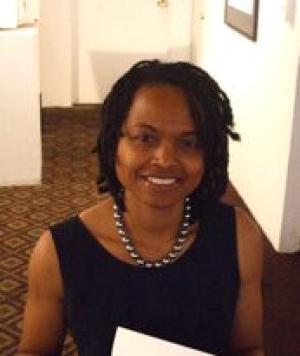
Debra J. Mumford, Frank H. Caldwell Associate Professor of Homiletics and Associate Dean for Student Academic Affairs, Louisville Presbyterian Theological Seminary. “Using Time.” What a curious phrase. At best, it is aspirational. At worst, it is a wee bit oxymoric....